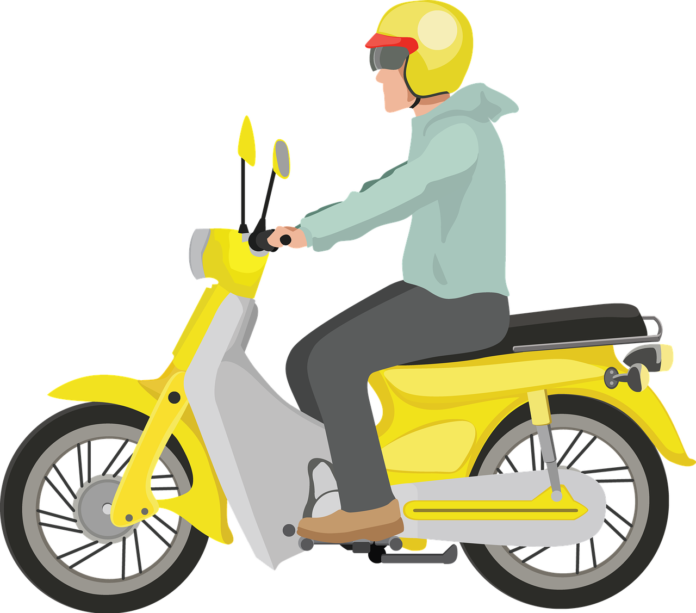India’s last-mile delivery ecosystem is experiencing a fundamental transformation as electric two-wheelers emerge as the preferred solution for urban logistics. With rising fuel costs, environmental concerns, and the explosive growth of e-commerce and food delivery services, businesses are rapidly transitioning to electric vehicles that offer superior operational economics and sustainability.
The startup ecosystem has responded with remarkable innovation, developing specialized electric two-wheelers that address the unique challenges of delivery operations. These vehicles combine extended range capabilities, cargo optimization, rapid charging solutions, and fleet management technologies to create comprehensive mobility platforms for modern logistics.
Here are nine groundbreaking electric two-wheelers that are redefining last-mile delivery across Indian cities:
River Indie: Engineering the Ultimate Delivery Workhorse
Bengaluru’s River EV has revolutionized the delivery scooter segment with the River Indie, aptly branded as the “SUV of scooters.” This robust vehicle represents a paradigm shift from conventional delivery solutions through its industrial-grade design philosophy.
The Indie’s 4 kWh battery architecture powers an impressive 120 km range, while the 6.7 kW mid-drive motor delivers exceptional torque for urban conditions and achieves speeds up to 90 km/h. The engineering excellence extends to its cargo solutions, featuring an unprecedented 43-liter under-seat compartment complemented by a 12-liter glovebox configuration.
Safety and durability considerations include 14-inch wheels for superior road handling, integrated crash protection systems, and dual USB charging capabilities for device connectivity. At ₹1.25 lakh, the Indie targets fleet operators who prioritize reliability and payload capacity over initial investment costs.
Simple One: Redefining Range Capabilities
Simple Energy’s flagship offering challenges conventional range limitations in the electric scooter category. The Simple One integrates a sophisticated 4.8 kWh battery system combining fixed and removable modules to achieve an industry-leading 212 km real-world range.
The vehicle’s 8.5 kW motor enables performance metrics including 105 km/h top speed and rapid acceleration characteristics suitable for intercity delivery operations. Advanced charging technology provides 1.5 km range per minute of charging, minimizing operational downtime.
Technology integration includes a 7-inch touchscreen interface with navigation and connectivity features, 30-liter storage capacity, and intelligent battery management systems for optimal performance monitoring. Priced at ₹1.45 lakh, the Simple One serves premium fleet operators requiring extended operational range in metropolitan areas.
Odysse TROT: Purpose-Built for Urban Logistics
Mumbai-based Odysse Electric has engineered the TROT specifically for delivery applications, prioritizing practical functionality over performance specifications. The vehicle’s 1.8 kWh removable LFP battery provides 75 km range with 70 km/h capability, optimized for urban delivery cycles.
Design innovations include a completely flat floorboard architecture for flexible cargo placement, integrated front carrier systems, and rear loading configurations for standardized delivery containers. The lightweight construction enhances maneuverability in congested traffic conditions while maintaining structural integrity.
At ₹1 lakh, the TROT offers compelling value for delivery platforms including food service providers and courier networks, combining affordability with application-specific design optimization.
eBikeGo Muvi Cargo: Lightweight Fleet Innovation
eBikeGo’s Muvi Cargo addresses the critical challenge of operational flexibility through its ultra-lightweight architecture weighing just 90 kg. The dual 1.2 kWh removable battery system enables 80 km range with 3-hour charging cycles per unit.
The vehicle’s 70 km/h hub motor configuration provides adequate performance for urban conditions while the modular battery design enables rapid swapping capabilities. Fleet management integration includes comprehensive telematics systems for real-time monitoring and optimization.
Positioned between ₹90,000-₹1 lakh, the Muvi Cargo targets B2B clients seeking operational efficiency through reduced maintenance requirements and flexible battery management solutions.
Motovolt URBN: Hyperlocal Delivery Specialist
Kolkata-based Motovolt Mobility has developed the URBN e-bike for short-distance delivery applications requiring minimal regulatory compliance. The 1.5 kWh twin battery system delivers 100 km range while the 250W BLDC motor maintains 25 km/h speed limitation for low-speed EV classification.
The vehicle incorporates both pedal-assist and throttle operation modes, weighs under 50 kg, and requires 4-hour charging cycles. This configuration eliminates licensing and registration requirements while providing adequate performance for hyperlocal delivery services.
Priced between ₹35,000-₹45,000, the URBN serves grocery delivery, pharmaceutical distribution, and food service applications in urban and semi-urban markets.
Yulu Dex: Mobility-as-a-Service Innovation
Yulu has pioneered the shared EV model with over 45,000 vehicles across Indian cities. The Dex delivery variant features cargo-optimized design with swappable 1 kWh batteries providing 60-80 km range and integration with Yuma Energy’s battery network.
The 25 km/h speed-limited configuration ensures regulatory compliance while the subscription-based model eliminates ownership barriers for gig economy workers. The pay-per-use structure provides operational flexibility without capital investment requirements.
This model addresses the growing demand for flexible mobility solutions among delivery personnel while ensuring zero-downtime operations through the battery swapping infrastructure.
Greta Harper ZX: Accessible Entry-Level Solution
Gujarat-based Greta Electric focuses on market accessibility with the Harper ZX, offering multiple battery configurations including lithium-ion and lead-acid options. Range capabilities vary from 60-100 km depending on battery selection, while the 250W hub motor provides 25-50 km/h performance.
The 4-5 hour charging cycle and portable battery design enhance operational convenience for small-scale delivery operations. Starting at ₹41,999, the Harper ZX demonstrates that electric mobility can be accessible across diverse economic segments.
This positioning makes electric delivery solutions viable for Tier-2 and Tier-3 markets where cost considerations are paramount but environmental and operational benefits remain attractive.
Enigma H1 Loader: Heavy-Duty Urban Logistics
The H1 Loader represents purpose-built design for cargo-intensive applications through its 1,500W BLDC hub motor and 3 kWh removable battery configuration delivering 120 km range. The 25 km/h speed ensures safety while maintaining productivity for urban operations.
Engineering features include CBS dual disc braking systems, hydraulic suspension for load stability, and heavy-duty tubular frame construction for enhanced durability. The 10-year battery warranty demonstrates confidence in long-term operational reliability.
At ₹75,000, the H1 Loader targets small businesses and vendors requiring robust cargo capabilities with minimal operational complexity.
iGowise BeiGo X4: Three-Wheeled Stability Innovation
Bengaluru’s iGowise Mobility has introduced unique three-wheeled architecture with the BeiGo X4, featuring dual rear wheels for enhanced stability in urban traffic conditions. The 3 kW hub motor paired with fire-resistant LiFePO₄ battery technology achieves 150 km range and 70 km/h performance.
Safety innovations include triple-disc anti-skid braking, 60-liter storage capacity, and comprehensive connectivity features including Bluetooth, geofencing, and multiple riding modes. The reverse mode capability enhances maneuverability in tight spaces.
Priced at ₹1.10 lakh with 5-year/100,000 km warranty, the BeiGo X4 offers premium reliability for businesses prioritizing safety and operational consistency.
Market Impact and Future Trajectory
These innovative electric two-wheelers represent more than technological advancement—they embody a fundamental shift toward sustainable urban logistics. Each vehicle addresses specific operational requirements while contributing to reduced emissions, lower operational costs, and enhanced delivery efficiency.
The diversity of solutions—from ultra-lightweight models for hyperlocal delivery to heavy-duty cargo platforms for industrial applications—demonstrates the maturity of India’s electric mobility ecosystem. Startups are not merely adapting existing technologies but engineering purpose-built solutions for Indian market conditions.
Transforming Urban Logistics
The adoption of these electric vehicles is creating ripple effects across the delivery ecosystem. Reduced operational costs enable more competitive pricing for end consumers while improved reliability enhances service quality. The environmental benefits contribute to cleaner urban air quality and reduced noise pollution in residential areas.
Fleet operators are discovering that electric vehicles offer superior total cost of ownership despite higher initial investments. The combination of lower maintenance requirements, reduced fuel costs, and improved productivity creates compelling business cases for electrification.
The Road Ahead
As charging infrastructure expands and battery technology continues advancing, these startup innovations will likely evolve further. Integration with smart city initiatives, autonomous delivery capabilities, and advanced fleet management systems represent the next frontier of development.
The success of these nine companies demonstrates India’s potential to lead global innovation in urban mobility solutions. Their continued development will play crucial roles in achieving both commercial success and environmental sustainability in the rapidly growing last-mile delivery sector.
The electric two-wheeler revolution in India’s delivery sector represents the convergence of environmental necessity, technological capability, and entrepreneurial innovation, creating solutions that benefit businesses, consumers, and cities alike.






